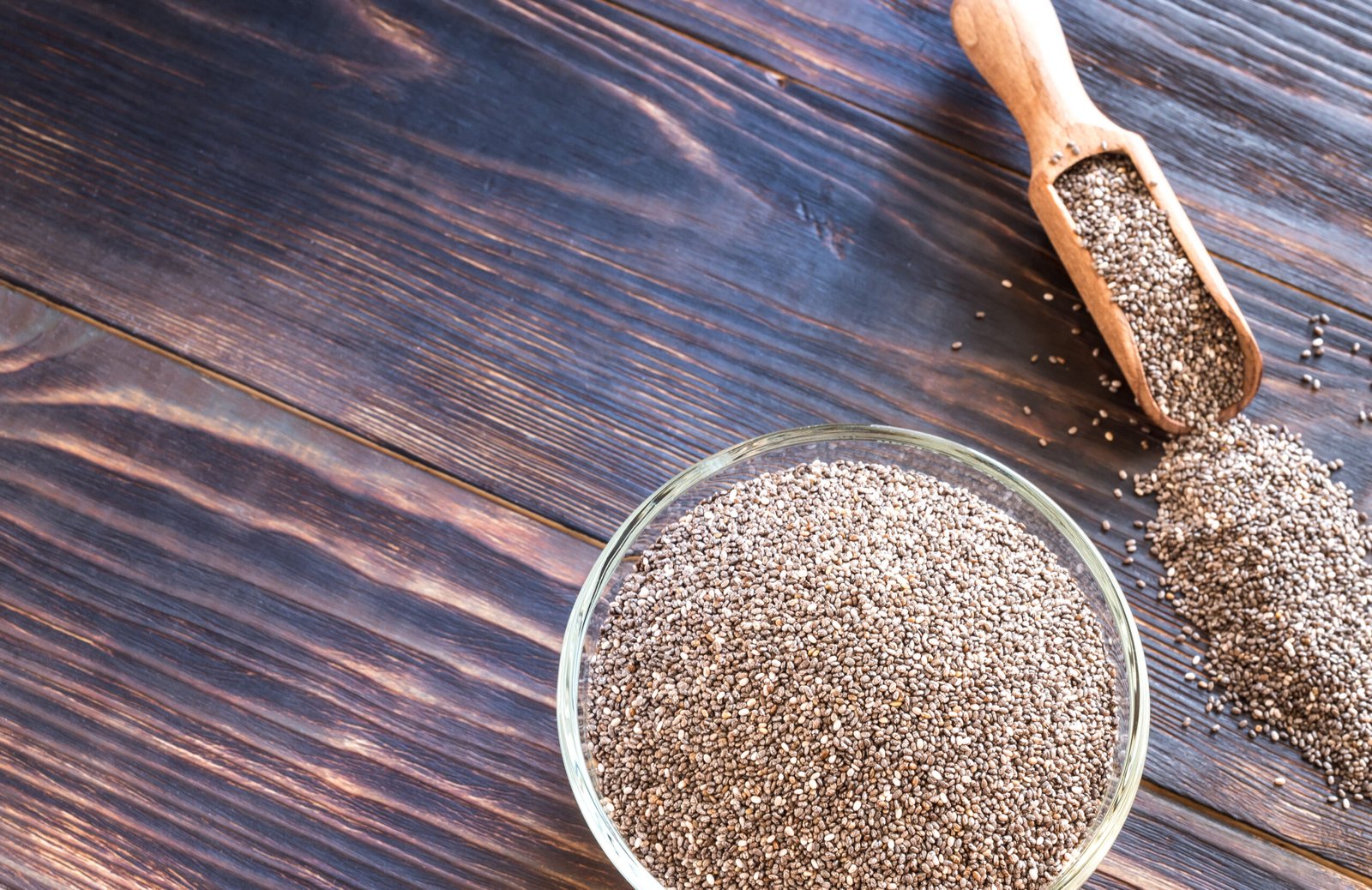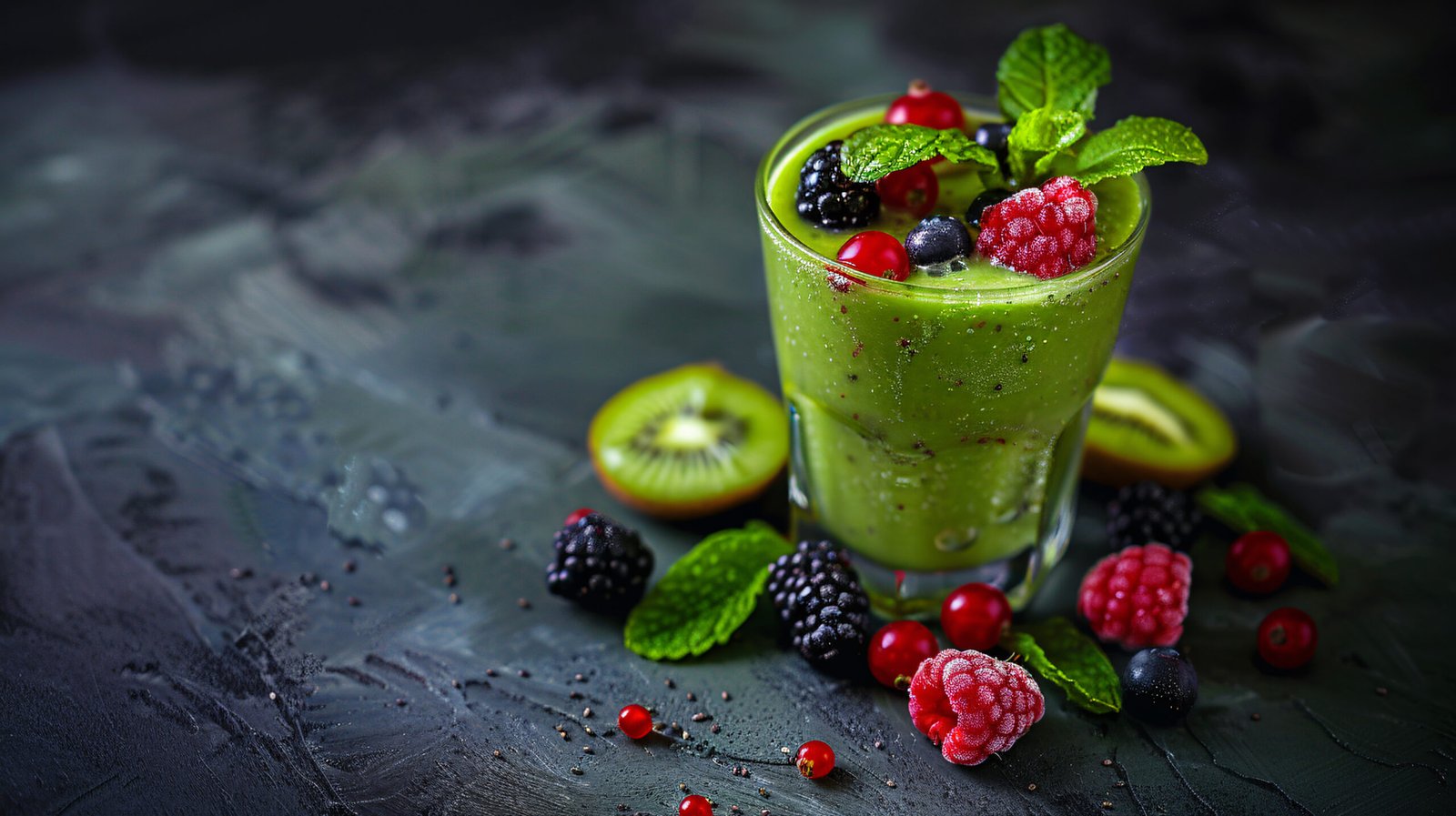Top 5 Superfoods You Should Include in Your Diet
Imagine walking through the grocery store and finding a treasure trove of foods that promise not only to satisfy your taste buds but also to supercharge your health. These foods, often referred to as “superfoods,” are more than just trendy ingredients for smoothies and salads. They are nutritional powerhouses, rich in vitamins, minerals, and antioxidants that offer a myriad of health benefits. In a world where maintaining a balanced diet is increasingly challenging, incorporating superfoods can be a game-changer for your well-being.
The term “superfood” might evoke images of exotic berries or expensive powders, but the truth is, many of these nutritional giants are already in your kitchen or can be easily added to your grocery list. Superfoods can help bolster your immune system, improve brain function, and even reduce the risk of chronic diseases. In this article, we’ll explore five popular superfoods you should consider incorporating into your diet and delve into the science-backed benefits they offer.

1. Blueberries
Overview:
Blueberries, often dubbed the “king of antioxidants,” are small, vibrant berries packed with nutrients. Their sweet-tart flavor makes them a versatile addition to a variety of dishes, from breakfasts to desserts. But beyond their taste, blueberries are a powerhouse of nutrition.
Nutritional Profile:
Calories: 57 per 100 grams
Vitamins: Vitamin C, Vitamin K, Vitamin E, Vitamin B6
Minerals: Manganese, Potassium, Copper
Antioxidants: Anthocyanins, flavonoids, phenolic acids
Health Benefits:
Antioxidant Powerhouse: Blueberries are rich in anthocyanins, a type of flavonoid with powerful antioxidant effects. These compounds help neutralize free radicals in the body, reducing oxidative stress and inflammation, which are linked to numerous chronic diseases.
Heart Health: Regular consumption of blueberries has been associated with reduced risk factors for heart disease, such as lowering bad LDL cholesterol and blood pressure. Their high levels of anthocyanins may help improve endothelial function and enhance heart health.
Brain Function: Studies have shown that the antioxidants in blueberries can delay brain aging and improve memory and cognitive function. They promote healthy communication between brain cells and may help protect the brain from neurodegenerative diseases like Alzheimer’s.
Diabetes Management: Blueberries have a low glycemic index and may help improve insulin sensitivity, making them a great option for managing blood sugar levels. The anthocyanins in blueberries can positively affect glucose metabolism and help reduce the risk of type 2 diabetes.
Digestive Health: The fiber content in blueberries supports healthy digestion and can help prevent constipation. Additionally, the prebiotic properties of blueberries may promote a healthy gut microbiome, enhancing overall digestive health.
How to Include Blueberries in Your Diet:
Add fresh or frozen blueberries to smoothies, yogurt, or oatmeal for a delicious and nutritious breakfast.
Toss blueberries into salads for a burst of color and flavor.
Use blueberries as a topping for whole-grain pancakes or waffles.
Enjoy them as a healthy snack on their own or mixed with nuts.

2. Kale
Overview:
Kale is a leafy green vegetable that has gained immense popularity for its exceptional nutritional profile. It’s a member of the cruciferous vegetable family, which includes broccoli, Brussels sprouts, and cabbage. Kale’s earthy taste and hearty texture make it a versatile ingredient in both raw and cooked dishes.
Nutritional Profile:
Calories: 35 per 100 grams
Vitamins: Vitamin A, Vitamin K, Vitamin C, Vitamin B6
Minerals: Calcium, Potassium, Magnesium, Iron
Antioxidants: Quercetin, kaempferol, carotenoids
Health Benefits:
Nutrient Density: Kale is one of the most nutrient-dense foods available, providing an abundance of vitamins and minerals in a low-calorie package. It’s an excellent source of vitamin K, essential for blood clotting and bone health.
Cancer Prevention: The glucosinolates in kale, sulfur-containing compounds, may have cancer-fighting properties. They help activate detoxification enzymes and inhibit the growth of cancer cells.
Bone Health: Kale is rich in calcium, magnesium, and vitamin K, all of which are crucial for maintaining strong and healthy bones. Vitamin K plays a vital role in bone mineralization and reducing the risk of fractures.
Eye Health: The high levels of lutein and zeaxanthin in kale contribute to eye health by protecting against cataracts and age-related macular degeneration. These carotenoids filter harmful blue light and act as antioxidants in the eyes.
Heart Health: Kale’s fiber content and antioxidants help lower cholesterol levels and reduce the risk of heart disease. It also contains omega-3 fatty acids, which support cardiovascular health.
How to Include Kale in Your Diet:
Make a kale salad with your favorite toppings, such as nuts, seeds, and a lemon-tahini dressing.
Add kale to smoothies for a nutrient boost without altering the flavor significantly.
Sauté kale with garlic and olive oil as a simple side dish.
Use kale as a base for green juices or soups.

3. Quinoa
Overview:
Quinoa is a pseudo-cereal that has gained recognition as a superfood due to its high nutritional content and versatility. Unlike traditional grains, quinoa is gluten-free and provides a complete protein source, making it an excellent choice for vegetarians and vegans.
Nutritional Profile:
Calories: 120 per 100 grams
Vitamins: Vitamin E, Vitamin B6, Folate
Minerals: Magnesium, Phosphorus, Manganese, Iron
Protein: Contains all nine essential amino acids
Health Benefits:
Complete Protein Source: Quinoa is one of the few plant-based foods that provide all nine essential amino acids, making it a valuable protein source for vegetarians and vegans. Protein is crucial for muscle repair, immune function, and overall growth and development.
High Fiber Content: Quinoa is rich in dietary fiber, which aids in digestion, promotes a feeling of fullness, and helps regulate blood sugar levels. The fiber in quinoa also supports heart health by reducing cholesterol levels.
Gluten-Free Alternative: For individuals with celiac disease or gluten sensitivity, quinoa offers a nutritious alternative to gluten-containing grains like wheat, barley, and rye.
Rich in Antioxidants: Quinoa contains a variety of antioxidants, including quercetin and kaempferol, which have anti-inflammatory and anti-cancer properties. These antioxidants help protect cells from oxidative damage.
Heart Health: The magnesium and potassium content in quinoa support heart health by regulating blood pressure levels. Additionally, quinoa’s fiber and antioxidant content contribute to reduced risk factors for cardiovascular disease.
How to Include Quinoa in Your Diet:
Use quinoa as a base for grain bowls, topped with vegetables, protein, and a flavorful dressing.
Substitute quinoa for rice or pasta in your favorite dishes for added nutrition.
Add cooked quinoa to soups, stews, or salads for a hearty and nutritious meal.
Make quinoa porridge for breakfast, topped with fruits, nuts, and a drizzle of honey.

4. Chia Seeds
Overview:
Chia seeds have been a staple in the diets of ancient civilizations for centuries, and their popularity has resurged due to their impressive health benefits. These tiny seeds pack a nutritional punch and are incredibly versatile in culinary applications.
Nutritional Profile:
Calories: 486 per 100 grams
Vitamins: Vitamin B1, Vitamin B2, Vitamin B3
Minerals: Calcium, Magnesium, Phosphorus, Zinc
Omega-3 Fatty Acids: Alpha-linolenic acid (ALA)
Health Benefits:
Rich in Omega-3s: Chia seeds are one of the best plant-based sources of omega-3 fatty acids, particularly alpha-linolenic acid (ALA). Omega-3s are essential for brain health, reducing inflammation, and supporting cardiovascular health.
High in Fiber: Chia seeds are an excellent source of dietary fiber, promoting healthy digestion and aiding in weight management. The fiber in chia seeds also helps stabilize blood sugar levels and supports gut health.
Bone Health: Chia seeds are rich in calcium, magnesium, and phosphorus, all of which are crucial for maintaining strong bones. Regular consumption of chia seeds can contribute to improved bone density and reduced risk of osteoporosis.
Blood Sugar Regulation: The soluble fiber in chia seeds can slow down the absorption of sugar, helping to stabilize blood sugar levels and reduce insulin spikes after meals.
Satiety and Weight Management: When mixed with liquid, chia seeds form a gel-like consistency that can help promote a feeling of fullness and reduce appetite, making them beneficial for weight management.
How to Include Chia Seeds in Your Diet:
Make chia seed pudding by mixing chia seeds with your choice of milk and sweetener, and let it sit overnight in the fridge.
Add chia seeds to smoothies for an extra boost of nutrition and texture.
Sprinkle chia seeds on top of yogurt, oatmeal, or cereal for added crunch.
Use chia seeds as an egg substitute in baking by mixing them with water to form a gel.

5. Salmon
Overview:
Salmon is a fatty fish renowned for its rich omega-3 fatty acid content and numerous health benefits. Its delicious taste and versatility in cooking make it a popular choice for seafood lovers and health enthusiasts alike. Salmon is available in various varieties, including Atlantic, Sockeye, Coho, and King, each offering a unique flavor profile and nutritional benefits.
Nutritional Profile:
Calories: 206 per 100 grams
Vitamins: Vitamin D, Vitamin B12, Vitamin B6
Minerals: Selenium, Potassium, Phosphorus, Magnesium
Omega-3 Fatty Acids: EPA (Eicosapentaenoic Acid), DHA (Docosahexaenoic Acid)
Protein: High-quality protein with all essential amino acids
Health Benefits:
Rich in Omega-3 Fatty Acids: Salmon is one of the best dietary sources of long-chain omega-3 fatty acids, including EPA and DHA. These fatty acids are crucial for brain health, reducing inflammation, and lowering the risk of heart disease. They also play a role in improving mood and cognitive function.
Heart Health: The omega-3 fatty acids in salmon contribute to heart health by reducing triglyceride levels, lowering blood pressure, and preventing the formation of blood clots. Regular consumption of salmon is associated with a decreased risk of heart attacks, strokes, and other cardiovascular diseases.
Bone Health: Salmon is an excellent source of vitamin D, which is essential for calcium absorption and bone health. Adequate vitamin D levels help maintain strong bones and reduce the risk of osteoporosis and fractures.
Brain Function: The DHA in salmon is vital for brain development and function, particularly in infants and young children. In adults, DHA supports memory and cognitive performance and may help protect against neurodegenerative diseases like Alzheimer’s.
Anti-Inflammatory Properties: The combination of omega-3 fatty acids and antioxidants in salmon provides potent anti-inflammatory effects, which can help alleviate symptoms of inflammatory conditions such as arthritis and inflammatory bowel disease.
How to Include Salmon in Your Diet:
Grill, bake, or broil salmon fillets for a quick and healthy dinner.
Add smoked salmon to salads, sandwiches, or wraps for a savory and nutritious meal.
Use canned salmon to make salmon patties or salads for an easy, protein-packed lunch.
Pair salmon with a variety of herbs, spices, and sauces to enhance its flavor.
Tips for Incorporating Superfoods
Variety is Key: Aim to include a diverse range of superfoods in your diet to ensure you receive a wide array of nutrients. Each superfood offers unique benefits, so incorporating a variety of them can help you achieve optimal health.
Focus on Whole Foods: While superfood supplements are available, it’s best to consume these foods in their whole form to maximize their nutritional benefits. Whole foods provide fiber, vitamins, minerals, and phytonutrients that work synergistically to support health.
Experiment with Recipes: Get creative in the kitchen and experiment with different recipes that incorporate superfoods. Try new cooking methods, flavors, and combinations to keep your meals exciting and enjoyable.
Balance and Moderation: While superfoods offer numerous health benefits, it’s important to maintain a balanced diet that includes a variety of foods from all food groups. Moderation is key to ensuring you receive all the essential nutrients your body needs.
Stay Informed: Keep up-to-date with the latest research on superfoods and nutrition. New studies continually provide insights into the benefits and potential uses of these powerful foods.
By making small changes to your diet and incorporating these superfoods into your meals, you can embark on a journey toward improved health and well-being. Remember, the key to a healthy lifestyle lies in balance, variety, and consistency. Enjoy the journey of discovering new flavors and nourishing your body with these incredible superfoods.



















0 Comments